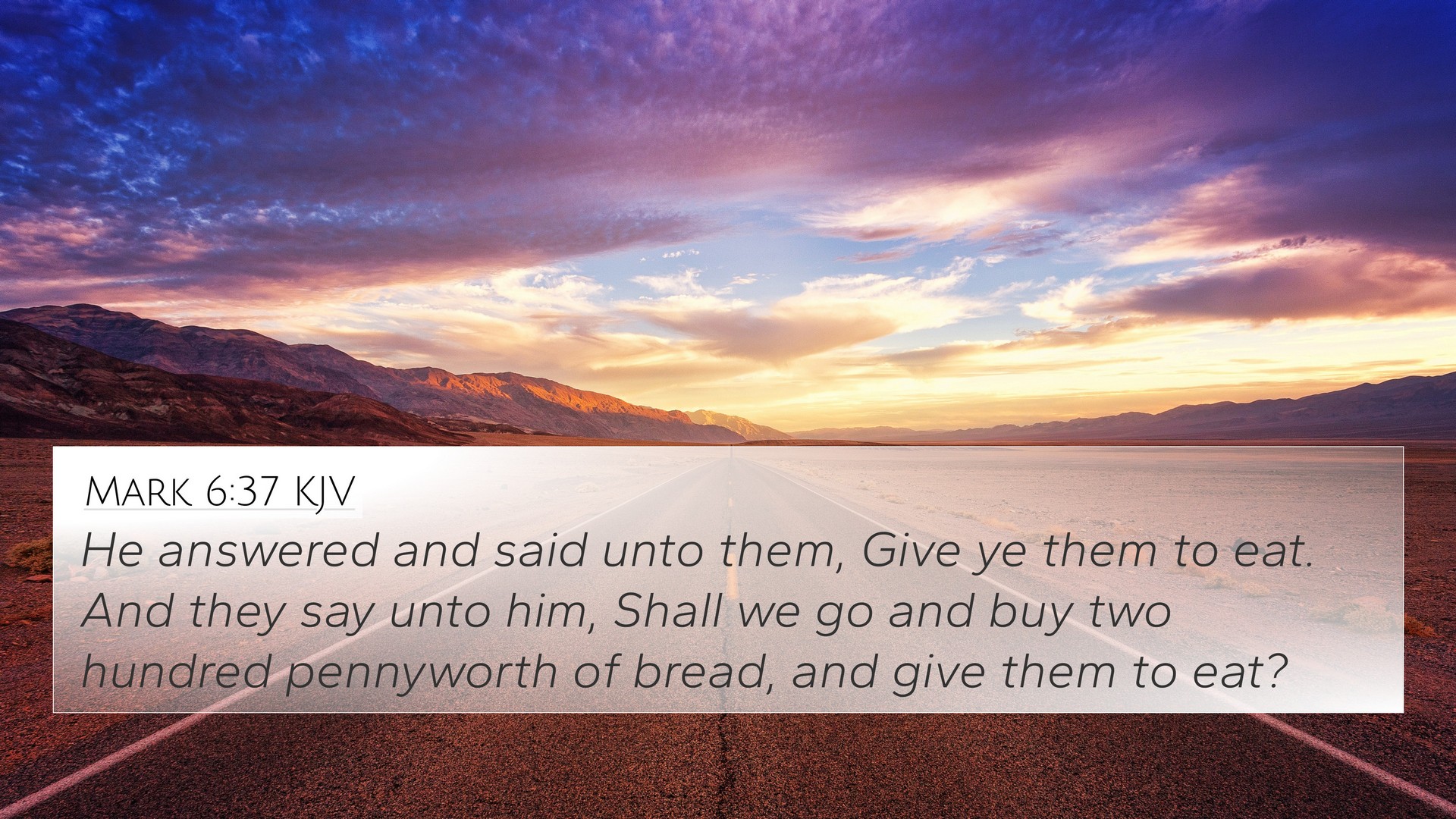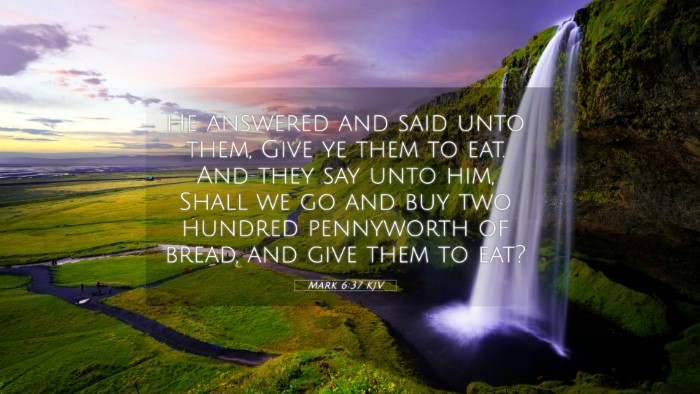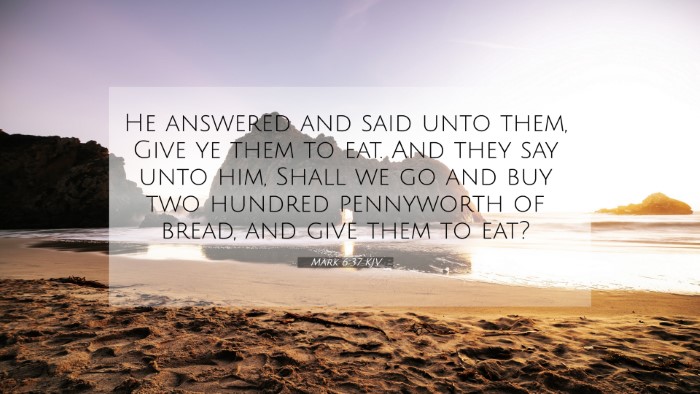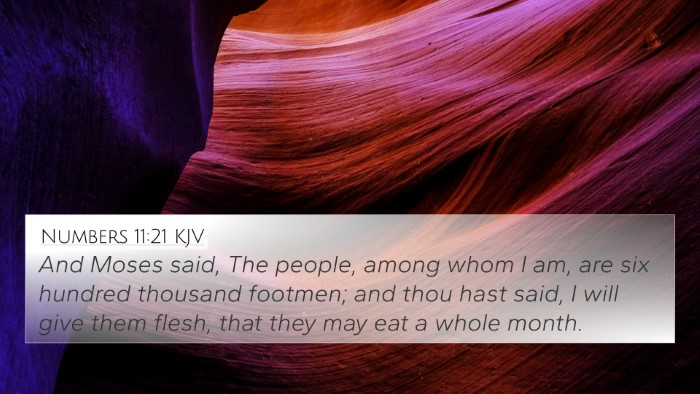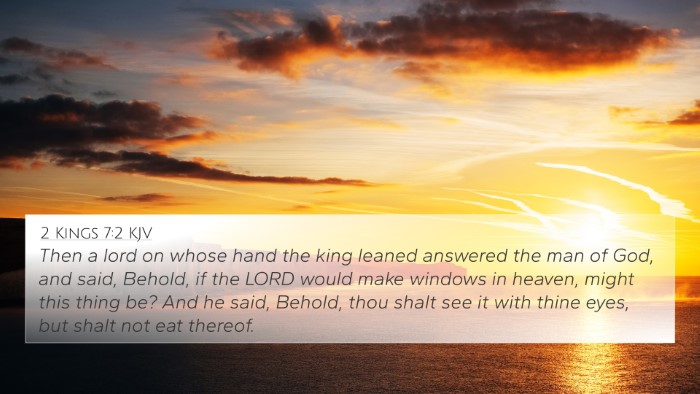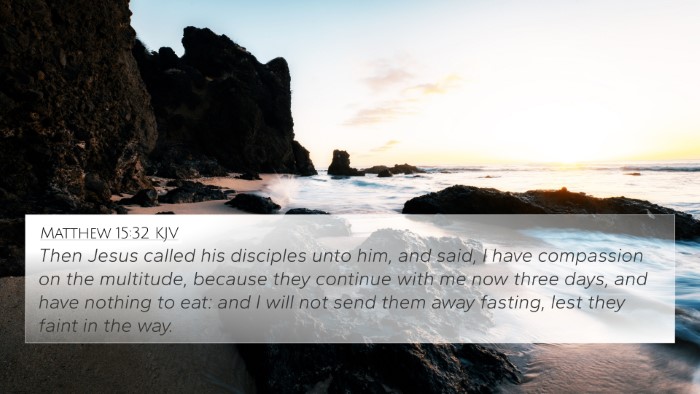Understanding Mark 6:37
Mark 6:37 states, "But he answered them, 'You give them something to eat.' And they said to him, 'Shall we go and buy two hundred denarii worth of bread and give it to them to eat?'" This verse is pivotal as it illustrates a key moment in the Gospel narrative where the disciples are confronted with a challenging situation and challenged to act.
Context and Background
In this passage, Jesus is addressing His disciples after they have observed the multitude that has gathered to hear Him teach. The disciples, feeling overwhelmed by the needs of the people, suggest sending them away to buy food. This moment sets the stage for one of Jesus’ greatest miracles: the feeding of the 5,000.
Commentary Insights
Insights from various public domain commentaries illuminate the implications of this verse:
- Matthew Henry: He emphasizes that the command to feed the multitude reflects Jesus' intention to test the disciples' faith. The response from the disciples indicates their lack of understanding and reliance on their limited resources.
- Albert Barnes: Barnes highlights the irony in the disciples’ reaction, noting that they underestimate Jesus’ power to provide. By suggesting that they would need to buy an exorbitant amount of bread, they exhibit doubt and a lack of faith in God’s provision.
- Adam Clarke: Clarke discusses the significance of the phrase "You give them something to eat," underlining that Jesus is not only addressing a physical need but also prompting the disciples to realize their role in ministry and compassion towards others.
Theological Implications
This verse encourages a deeper understanding of several significant themes:
- Faith in Action: It challenges believers to respond in faith when faced with insurmountable problems.
- Dependence on God's Provision: It highlights reliance on divine intervention rather than mere human resources.
- Leadership in Crisis: Jesus models servant leadership by engaging His disciples in the solution.
Related Bible Cross-References
Mark 6:37 connects with numerous other scriptures, enhancing its meaning and application:
- Exodus 16:15: The provision of manna in the desert illustrates God's ability to meet the physical needs of His people.
- Matthew 14:16: A parallel account of the feeding of the 5,000 reinforces the miraculous provision of food.
- Luke 9:13: Another Synoptic Gospel account that offers a broader perspective on this event.
- Philippians 4:19: "And my God will supply every need of yours according to his riches in glory in Christ Jesus," relates to God's personal provision for His followers.
- John 6:5-6: This passage shows Jesus questioning Philip to test him on the provision for the crowd, a direct connection to Mark 6:37.
- Psalm 37:25: "I have been young, and now am old, yet I have not seen the righteous forsaken or his children begging for bread," speaks to God’s faithfulness in provision.
- Romans 8:32: This verse reflects the idea that God will give us all we need, similar to how Jesus provides for the crowd.
Conclusion
Mark 6:37 challenges readers to reconsider how they view resources and power in light of divine capability. By utilizing cross-references, believers can better understand the continuity and themes that run throughout Scripture.
Tools for Enhanced Study
For those looking to deepen their study of this passage and similar verses, utilizing Bible concordance tools can reveal connections between different scripture references.
Engaging in cross-reference Bible studies will help enhance your understanding of biblical themes, as you explore how various passages interrelate.
Final Thoughts
Understanding passages like Mark 6:37 through the lens of cross-references enriches our reading of the Bible and brings to light the interconnections throughout Scripture, enhancing our knowledge and faith.
